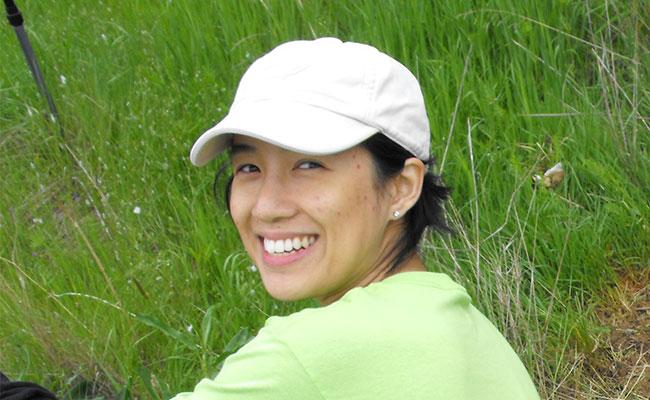Interview With Candice Au-Yeung, Civil Engineer
Seizing opportunities to learn and mentor in the civil engineering field

Candice Au-Yeung is a civil engineer and assistant project manager at Tetra Tech. She specializes in site-civil and pipeline design and planning for municipal combined sewer overflow programs. She has bachelor’s and master’s degrees in civil and environmental engineering. We talked with Candice as part of our #TtInspires campaign celebrating the passion of Tetra Tech employees. Follow #TtInspires on social media for more stories.
What originally attracted you to Tetra Tech?
I was attracted to Tetra Tech because of the opportunity to work with mentors and role models in the Seattle, Washington, office. They have a positive attitude toward growth and development for younger and mid-level staff and toward each other as peers. I appreciate and am amazed by how much support I am given to pursue my ideas for strengthening the teams I work with, the office, and the company. I am empowered to be the positive change I want to see.
Tell us about some of the projects you have worked on at Tetra Tech that have been the most inspirational to you.
One inspirational project I work on is the Combined Sewer Overflow (CSO) Program Support Services contract for Seattle Public Utilities. It gives me the opportunity to work with many knowledgeable people across the firm, including recognized industry experts, who serve as fantastic female mentors and role models to me. It is eye-opening seeing how complex the needs of a growing and global metropolitan city really are, as well as the need to consider all stakeholders—internal to the city’s organization, political, and external across the public demographic. I enjoy learning about balancing those needs and working to find the best solution for all parties. It is a very exciting challenge to solve the engineering problem, while maximizing the benefits to the community through solutions that you can only conceive when you work as a multidisciplinary team.
I’ve also worked on projects where we help communities with fewer resources creatively phase and scale projects. For example, the City of Carlton, Oregon, for which Tetra Tech is the city engineer, has similar basic needs for their community as Seattle. However, they don’t have the same resources and guaranteed future growth as a bigger city, so this creates a different set of challenges on how to implement projects. We are helping them plan for what works now, while including the flexibility to adapt as their community grows. We need to understand the real-world constraints and priorities of Carlton and know how to be nimble and adaptive—that is the type of engineering you are not taught in school. There is way more than just an engineering problem to solve. Working on projects at Tetra Tech is always a learning process, and I enjoy that.
What do you do outside of your work that you think makes a difference for today’s environment?
I focus on activities that actively pull up and positively influence those directly around me. This includes promoting Science, Technology, Engineering, and Mathematics (STEM) through judging Future Cities and Stockholm Junior Water Prize competitions, speaking to students about my work, and volunteering at engineering activity fairs and career fairs.
I also like to do hands-on habitat restoration for various local organizations—including those of clients such as King County. In school I learned about hydrology, specifically how the built environment affects the land’s response to storm events, and how that trickles down to factors including storm drainage and water quality, which I work on at Tetra Tech. Doing habitat restoration is a way for me to roll up my sleeves and take my practice outside of the office to help solve the problem.

